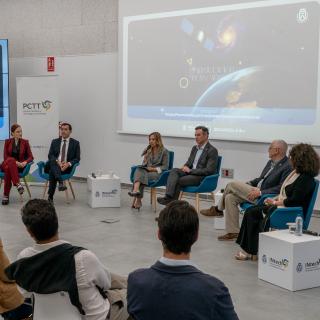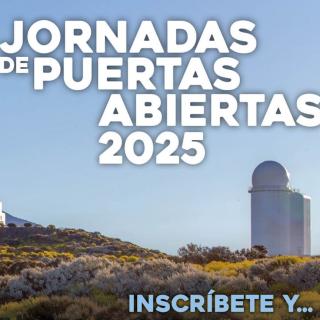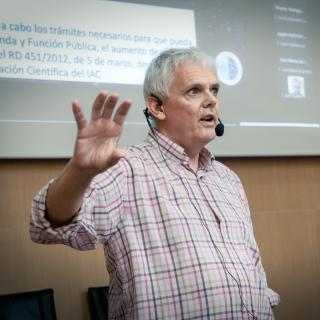It may interest you
-
 El Cabildo y el IAC fabricarán la primera constelación de satélites canaria para observar y proteger el Archipiélago desde el espacioAdvertised on
El Cabildo y el IAC fabricarán la primera constelación de satélites canaria para observar y proteger el Archipiélago desde el espacioAdvertised on -
 The Instituto de Astrofísica de Canarias (IAC) invites the public to visit the Teide Observatory (Izaña, Tenerife) during the weekend of 21 and 22 June, coinciding with the week of the summer solstice. The activity is part of its Open Days, a free science outreach initiative organised by the Observatory itself together with the IAC's Scientific Communication and Culture Unit (UC3). Over two days, those attending will be able to tour some of the most important scientific facilities at the centre, learn how they work from the technical and research staff, and make live solar observations. EachAdvertised on
The Instituto de Astrofísica de Canarias (IAC) invites the public to visit the Teide Observatory (Izaña, Tenerife) during the weekend of 21 and 22 June, coinciding with the week of the summer solstice. The activity is part of its Open Days, a free science outreach initiative organised by the Observatory itself together with the IAC's Scientific Communication and Culture Unit (UC3). Over two days, those attending will be able to tour some of the most important scientific facilities at the centre, learn how they work from the technical and research staff, and make live solar observations. EachAdvertised on -
 En el marco del CXLVIII aniversario del nacimiento del ilustre científico canario Blas Cabrera y Felipe, la Real Sociedad Económica de Amigos del País de Tenerife (RSEAPT) acogerá una conferencia a cargo de Valentín Martínez Pillet, director del Instituto de Astrofísica de Canarias (IAC) y experto en Física Solar. La charla tendrá lugar el próximo martes 24 de febrero a las 18:00 horas en la sede de esta institución en La Laguna. Bajo el título “Viviendo con una estrella: el bueno, el feo y el malo”, Martínez Pillet explorará la relación entre la Tierra y el Sol. La charla, que forma parteAdvertised on
En el marco del CXLVIII aniversario del nacimiento del ilustre científico canario Blas Cabrera y Felipe, la Real Sociedad Económica de Amigos del País de Tenerife (RSEAPT) acogerá una conferencia a cargo de Valentín Martínez Pillet, director del Instituto de Astrofísica de Canarias (IAC) y experto en Física Solar. La charla tendrá lugar el próximo martes 24 de febrero a las 18:00 horas en la sede de esta institución en La Laguna. Bajo el título “Viviendo con una estrella: el bueno, el feo y el malo”, Martínez Pillet explorará la relación entre la Tierra y el Sol. La charla, que forma parteAdvertised on